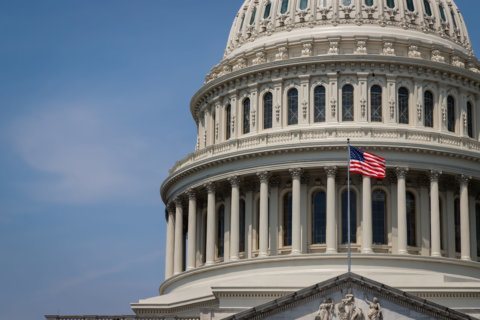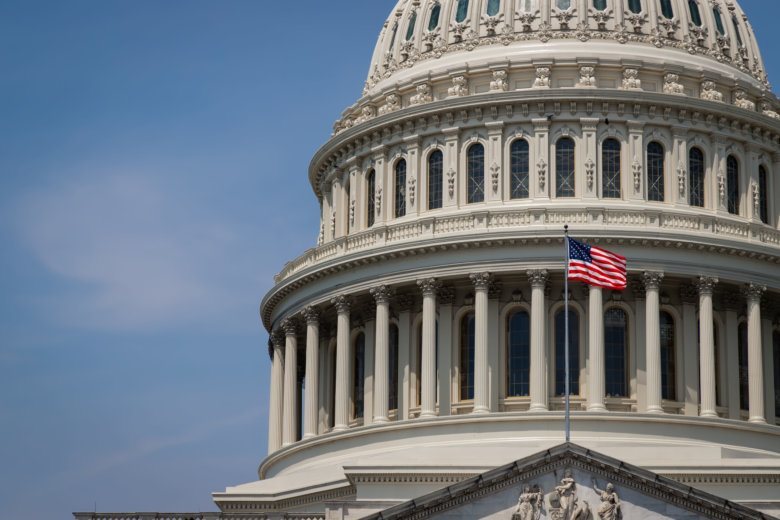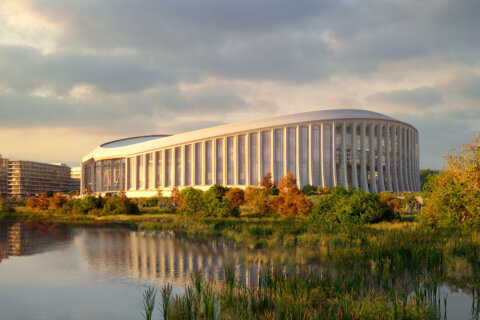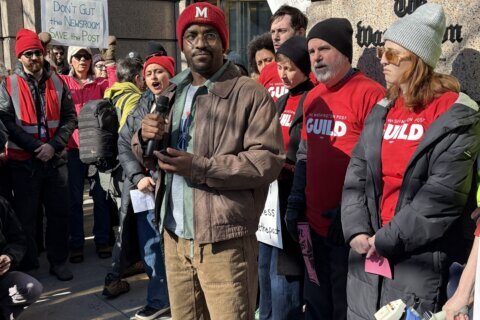
Supporters of a bill to make D.C. the nation’s 51st state, which the House passed this week, often cite “taxation without representation” as a rallying cry.
The phrase appears on D.C. license plates and has been uttered too many times to count by D.C. Del. Eleanor Holmes Norton during her decades-long fight to get the District of Columbia a vote that counts in Congress.
Those three words were invoked even before the U.S. came into being, as George Washington and others in the colonies rebelled against British rule and its taxes.
D.C. eventually became the focal point of the great democratic experiment, the capital of the nation’s government.
So why didn’t the District of Columbia become one of the original states?
Nation’s founders established the ‘District’
The area that D.C. now occupies is spelled out in the Constitution as the seat of government. It was designed specifically as a district, rather than a state, under a complex agreement involving Alexander Hamilton, Thomas Jefferson and James Madison. Even its size, “not exceeding ten Miles square,” is specified.
Madison was concerned that if the capital was located in a state, that state could gain too much power and impose restrictions on Congress. So the founders made a conscious decision not to locate the U.S. Capitol in a state.
Washington is now known worldwide for its many grand buildings and monuments. But its first federal monuments were actually the D.C. Boundary Stones, which were put in place to designate the physical boundary of the District.
They were stretched 10 miles square, and many still exist today.
DC was created thanks to Virginia and Maryland
Virginia and Maryland were among the original 13 colonies that became the first states. And the two states played a key role in creating the District of Columbia.
Ultimately, it was President George Washington who chose the site of the District, along the Potomac and Anacostia rivers.
It was founded in 1790, after Virginia and Maryland ceded the land to create it. An original map of plans for the permanent seat of government is in the Library of Congress.
Early on, the city of Alexandria was considered part of the District, and today’s Virginia residents may be interested to know that those who lived in Alexandria at the time had no representation in Congress and could not vote for president.
Eventually, Alexandria rejoined Virginia in 1846, amid concerns that Congress would prohibit slavery in the District, which it did in the Compromise of 1850.
GOP lawmaker: Why not cede DC back to Maryland?
During the latest House floor debate on the D.C. statehood bill, Rep. Morgan Griffith, R-Va., said that the District’s lack of representation could be solved by the city being returned to Maryland.
He argued that his proposal is “the most practical solution to giving D.C. residents a voice in Congress, to give them a right to vote.”
He proposed an amendment to Norton’s bill, H.R. 51, “to provide for the retrocession of land to the state of Maryland, rather than to create a new state.”
His motion to recommit, as the procedure is known, was voted down.
But similar suggestions have been made many times over the years, with supporters of the idea noting that it would give current D.C. residents the representation they seek, but as Maryland residents.
D.C. statehood supporters reject the concept and point out that Maryland hasn’t accepted it.
Doesn’t making DC a state require a constitutional amendment?
Many Republican lawmakers argue that for D.C. to become a state, a constitutional amendment is needed, which would have to be approved by two-thirds of the current 50 states.
“H.R. 51 goes against the Founding Founders’ intent and is unconstitutional, impractical and a blatant power grab,” said Rep. James Comer, R-Ky., arguing against the bill.
But supporters of the measure counter that the legislation does not require a constitutional amendment.
Rep. Jamie Raskin, D-Md., who before he came to Congress was a constitutional scholar, maintained that thin arguments have been made repeatedly over the years against admitting various states.
He said the arguments to reject the rights of fellow Americans are “often wrapped in constitutional clothing.”
“With Texas it was said, Texas could not be admitted because it would be unconstitutional because it was its own country,” he said. “It was said Hawaii and Alaska could not be admitted because they were not contiguous.”
He cited several other examples, including the argument that West Virginia couldn’t be admitted to the union because it was part of Virginia; Oklahoma “was said to be too poor;” New Mexico was “too Catholic, and on and on and on.”
Raskin said there is no requirement for a constitutional amendment to make D.C. a state.
The House passed the statehood bill — now what?
Norton and statehood supporters say that D.C. has never been closer to becoming the 51st state. And from a recent political and historic perspective, that’s true.
But the road to becoming the nation’s newest state is still a very long one, filled with lots of legal and political potholes.
Senate Majority Leader Chuck Schumer supports the bill and has said he would like it to come to the Senate floor for a vote. But even with slim Democratic control of the upper chamber, through the 50-50 split and the vice president’s potential tie-breaking vote, there’s no GOP support for the measure.
That means Democrats don’t have nearly enough votes to overcome the 60-vote filibuster needed to advance the bill.
Norton argues that the filibuster is “on its last legs” in the Senate. But there’s no sign that the filibuster is going away in the immediate future, especially when Sen. Joe Manchin, D-WV., has indicated he wouldn’t vote to get rid of it.
In the meantime, Norton and supporters of statehood say they’ll keep trying to raise the profile of the issue. They remain hopeful that a Senate hearing on the bill will be held at some point.
Even if Congress managed to pass the legislation and President Biden signed it, however, D.C. would still be a long way from becoming a state.
That’s because the legislation would immediately be challenged in the courts. And there’s little doubt the issue of whether D.C. can become a state would end up before the U.S Supreme Court.









